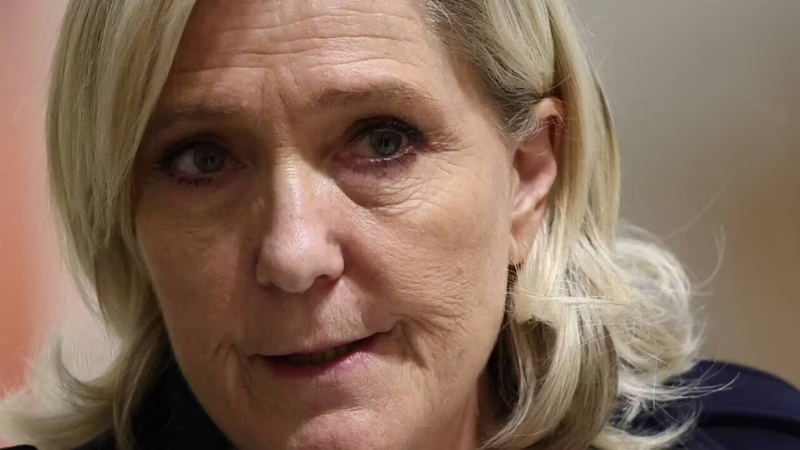Politics
Marine Le Pen faces critical crossroads: Stateswoman or saboteur?

France’s far-right leader’s decision to topple the government raises questions about her strategy ahead of 2027.
Marine Le Pen, leader of France’s far-right National Rally, has reignited debate about her political strategy after orchestrating the downfall of Prime Minister Michel Barnier’s center-right government. Her move to oppose the government’s austerity budget has thrust her party into the spotlight but risks alienating centrist voters critical to her presidential ambitions in 2027.
This high-stakes gamble signals a return to her disruptive roots, a stark departure from her years-long effort to soften her image and appeal to mainstream voters. Her decision has divided the National Rally, with some warning of potential backlash from moderate supporters who value stability. Analysts argue that Le Pen prioritized consolidating her far-right base over broadening her appeal, a choice that could undermine her electability.
Le Pen’s actions have sparked accusations of opportunism, with critics suggesting the move is tied to her upcoming embezzlement trial, which could jeopardize her eligibility for public office. While she insists the decision was about “responsible governance,” it has fueled speculation about her long-term strategy, including whether she aims to force early elections.
As Emmanuel Macron prepares to name a new prime minister, Le Pen faces a dilemma: support the next government and risk losing her anti-establishment credentials, or remain a staunch opponent and risk marginalizing her party. With the 2027 presidential election looming and Macron barred from running again, the stakes for France—and for Le Pen—couldn’t be higher.

-

 Minnesota2 months ago
Minnesota2 months agoFraud Allegations Close In on Somalia’s Top Diplomats
-

 Middle East2 months ago
Middle East2 months agoTurkey’s Syria Radar Plan Triggers Israeli Red Lines
-

 Editor's Pick2 months ago
Editor's Pick2 months agoWhy India Is Poised to Become the Next Major Power to Recognize Somaliland
-

 ASSESSMENTS2 months ago
ASSESSMENTS2 months agoSomalia’s Risky Pact with Pakistan Sparks Regional Alarm
-

 Analysis2 months ago
Analysis2 months agoTurkey’s Expanding Footprint in Somalia Draws Parliamentary Scrutiny
-

 Analysis2 months ago
Analysis2 months agoRED SEA SHOCKER: TURKEY’S PROXY STATE RISES—AND ISRAEL IS WATCHING
-

 Somaliland1 month ago
Somaliland1 month agoF-35s Over Hargeisa: The Night Somaliland’s Sovereignty Went Supersonic
-

 Somalia2 months ago
Somalia2 months agoIs Somalia’s Oil the Price of Loyalty to Turkey? MP Blows Whistle on Explosive Oil Deal
































